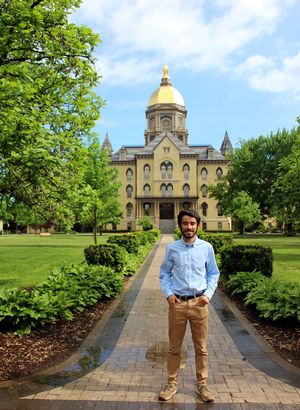
It’s never been easy for me to personally relate to poverty. I’ve led a very fortunate life; I have a wonderful family that has left me wanting for nothing, friends that have never failed me in times of need, and countless blessings that I easily take for granted. Even as I have immersed myself in opportunities—whether serving in soup kitchens, volunteering at homeless shelters, or working at Catholic outreach centers—I always sensed this disconnect, a feeling that no matter what I do, I will never really be able to bridge the gap and understand the impact of my work. Subsequently, I felt powerless. How will I ever know if I am doing the right thing, or if I am doing enough, or if I am even helping at all? Luckily, LEO is here to help me find the answers.
From the start, I saw the ambition, passion, and proficiency of everyone on the LEO team. I’m inspired by how LEO’s mission of reducing poverty and improving lives is enacted every day, all over the country. My own work as an undergraduate research assistant at LEO has revolved around two different projects, the Youth and Family Homelessness Prevention Initiative (YFHPI) and Bridges to Success. The YFHPI study is helping us to learn more about the impact that personalized case management can have on preventing homelessness. Similarly, Bridges to Success is working to understand the impact that intensive mentorship services can have on helping people lead full, dignified, and self-sustaining lives. Through these projects, I’ve gained a greater appreciation for the struggles of those in poverty and the important role communities and nonprofit organizations play in lifting them to better situations. As I’ve perused literature on our various studies and processed all sorts of data, I’ve attained a deeper understanding of the complexity of poverty and the immense challenges faced by those caught in its cycle. While I may not personally experience poverty, my work at LEO has helped me to understand its gravity. I’m very grateful for the ways LEO has helped me to expand my worldview.
A highlight of my LEO career was attending a conference last summer designed to connect LEO with nonprofit organizations whose work raised some intriguing and potentially insightful research questions. Sitting in on these conversations and watching ideas and links develop was a formative experience, one that showed me the power of connecting specific goals with groups of driven people who are committed to seeing them through.
My time at LEO continues to influence my future goals, too. Next year, I will be studying at the Institute of Advanced Analytics at North Carolina State University to receive a postgraduate degree in analytics. I hope to secure a data analyst position after graduation, potentially at the Federal Reserve or an economic think tank. As a prospective statistician, I believe in the power of rigorous evaluation to solve the world’s problems, and LEO has provided a shining example of this idea. The staff at LEO has demonstrated the potency of a collection of great people united toward the common goal of solving poverty. I feel more equipped than ever to go out into the world and use the knowledge I have gained at LEO and Notre Dame to make a definite and positive impact.